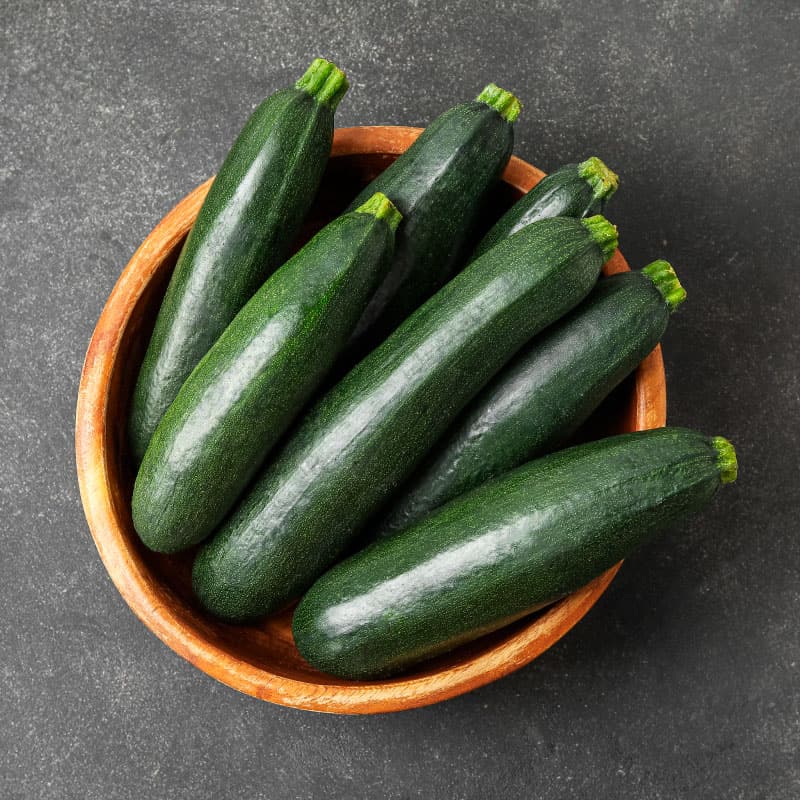Why Companion Plants Are Essential for Thriving Zucchini

Zucchini ranks among the most gratifying vegetables to cultivate in your garden. Known for its rapid growth, adaptability, and generous yields, zucchini rewards gardeners with bountiful harvests without demanding much effort. Yet, like many garden staples, it faces challenges from pests, diseases, and competition for nutrients. Instead of relying solely on chemical fertilizers or pesticides, companion planting offers a natural and eco-friendly strategy to nurture zucchini plants, improve soil vitality, and ward off harmful insects.
This guide highlights five companion plants that naturally support zucchini by deterring pests, enriching the soil, and fostering a harmonious garden environment.
How Companion Planting Benefits Zucchini:
Companion planting emulates natural ecological partnerships. When paired with the right plants, zucchini can:
- Deter pests: Certain herbs and flowers keep squash bugs, aphids, and cucumber beetles at bay.
- Attract beneficial insects: Pollinators and predatory bugs boost fruit production and help control pest populations.
- Enhance soil quality: Some companions improve nutrient availability or enrich the soil through nitrogen fixation.
- Promote robust growth and higher yields: By minimizing stress and competition, zucchini plants flourish with larger, healthier fruits.
By thoughtfully selecting companion plants, gardeners can optimize zucchini growth naturally, reduce chemical inputs, and cultivate a resilient garden ecosystem.
1. Nasturtiums: Vibrant Pest Magnets

Nasturtiums are bright, trailing blossoms that serve as natural pest deterrents.
- Why they work: Nasturtiums lure aphids and whiteflies away from zucchini, acting as a “trap crop.”
- Benefits for zucchini: This reduces pest damage, helping maintain strong, healthy foliage and stems.
- Planting advice: Position nasturtiums along the edges of zucchini patches or weave trailing varieties through the vines. Regular pruning prevents overcrowding.
- Extra perks: They also attract pollinators and add a splash of color to your garden.
2. Marigolds: Potent Pest Defenders
More than just decorative, marigolds are powerful protectors of zucchini plants.
- Why they work: Marigolds emit compounds that repel nematodes, beetles, and other harmful pests.
- Benefits for zucchini: They shield roots from soil-borne pests and prevent damage to leaves and fruit.
- Planting advice: Surround zucchini beds with marigolds or interplant them for ongoing protection. Deadhead flowers regularly to maintain their pest-repelling strength.
- Extra perks: Marigolds attract beneficial insects like ladybugs and lacewings, which prey on zucchini pests.
3. Borage: Enhances Pollination and Growth
Borage stands out as a top companion plant thanks to its multiple advantages for zucchini.
- Why they work: Borage draws bees, which significantly improves pollination and fruit development.
- Benefits for zucchini: Better pollination leads to increased fruit quantity and quality. Additionally, borage leaves release nutrients that nourish zucchini roots.
Planting Advice for Zucchini Companions
Borage:
- Position borage near your zucchini plants, but be sure to leave enough room for good air flow.
- Its tall, blossoming stalks offer much-needed shade to young zucchini during hot spells.
- Bonus perks: Borage blooms are edible and packed with nutrients, adding both charm and utility to your garden.
Oregano: A Low-Growing Protector
- Oregano is a resilient, ground-hugging herb that benefits zucchini in several ways.
- Why it helps: The fragrant oils in oregano deter pests such as aphids and squash bugs.
- How it aids zucchini: It shields leaves and fruits from insect harm and serves as a natural mulch to keep soil moist.
- Planting pointers: Surround zucchini bases with oregano or use it as a living mulch between rows.
- Regular harvesting promotes vigorous growth and prevents oregano from overshadowing zucchini leaves.
- Extra benefits: Oregano draws pollinators and helpful insects, boosting your garden’s ecological health.
Corn: Natural Shade and Support
- Though an unexpected partner, corn complements zucchini well when planted thoughtfully.
- Why it works: Corn offers partial shade, protecting zucchini from intense heat that can scorch leaves and trigger early flowering.
- Benefits for zucchini: It helps reduce heat stress and conserves moisture in the soil.
- The tall corn stalks can also act as a natural trellis for zucchini vines in certain layouts.
- Planting advice: Place corn rows beside or behind zucchini beds to manage sunlight without casting too much shadow.
- Maintain proper spacing to prevent competition for nutrients.
- Additional perks: Corn attracts pollinators, adding another layer of ecological support.
Best Practices for Companion Planting with Zucchini
- Space Wisely: Prevent overcrowding to ensure good airflow, lower disease risk, and allow all plants to flourish.
- Combine Flowers and Edibles: Flowers lure pollinators and predatory insects, while herbs enrich soil and fend off pests.
- Stagger Planting Times: Since some companions mature faster than zucchini, planting in phases helps maintain balance and reduces competition.
- Rotate Crops Annually: Changing planting locations yearly helps minimize soil diseases and nutrient depletion.
- Monitor Regularly: Even with companion planting, keep an eye out for early signs of pests or stress to ensure healthy growth.
Common Pitfalls to Avoid
- Planting nutrient-heavy crops too close together—zucchini requires plenty of nutrients, so avoid neighbors that compete aggressively.
- Overlooking sunlight needs—make sure companion plants don’t cast excessive shade during zucchini’s critical fruiting phase.
- Crowding flowers and herbs—dense planting can restrict airflow and increase the chance of fungal diseases.
- Neglecting soil fertility—companion planting helps, but zucchini still benefits from compost or organic fertilizers for peak performance.
Additional Companion Plant Options
Beyond the top five companion plants already mentioned, several others can also enhance zucchini cultivation:
- Radishes – Serve as decoys to attract cucumber beetles away from zucchini.
- Spinach – Acts as a low-lying ground cover that helps retain soil moisture.
- Nasturtiums – Available in a range of colors and sizes, these plants boost biodiversity and help deter pests.
- Legumes (beans and peas) – Enrich the soil by fixing nitrogen, promoting healthier zucchini growth.
Summary
Zucchini flourishes best when grown alongside carefully chosen companion plants. Nasturtiums, marigolds, borage, oregano, and corn contribute to natural pest defense, enhanced pollination, improved soil fertility, and better moisture retention—eliminating the need for synthetic chemicals. Incorporating these companions into your zucchini patch fosters a balanced, self-sustaining ecosystem that increases yield and minimizes environmental harm. Thoughtful arrangement, adequate spacing, and consistent care ensure that zucchini and its plant partners thrive together, producing plentiful, nutritious fruits year after year. Companion planting transcends simple gardening; it’s an eco-friendly approach that harnesses natural plant interactions to support growth, boost biodiversity, and maintain soil health. With the right plant allies, zucchini can achieve optimal productivity with fewer pests and no chemical inputs, making your garden both fruitful and sustainable.
Zucchini Companion Planting Benefits
- Fast-growing, prolific vegetable benefiting from natural pest and nutrient management.
- Companion planting offers sustainable pest control, soil health improvement, and growth enhancement.
Why Companion Plants Matter
- Repel pests like squash bugs, aphids, and beetles.
- Attract beneficial insects for pollination and pest control.
- Improve soil nutrients and reduce plant stress.
- Increase zucchini yield and fruit quality.
Top 5 Companion Plants for Zucchini
- Nasturtiums: Trap pests (aphids, whiteflies), attract pollinators, and add garden beauty.
- Marigolds: Repel nematodes and beetles, protect roots and leaves, attract ladybugs and lacewings.
- Borage: Attract bees for better pollination, enrich soil nutrients, provide shade.
- Oregano: Repels aphids and squash bugs, acts as mulch to retain moisture, attracts beneficial insects.
- Corn: Provides shade to reduce heat stress, acts as natural trellis, attracts pollinators.
Companion Planting Tips
- Maintain proper spacing to ensure airflow and reduce disease.
- Mix flowering and edible plants for pollination and pest control.
- Stagger planting times to balance growth.
- Rotate crops annually to prevent disease and nutrient depletion.
- Monitor plants regularly for pests and stress.
Common Mistakes to Avoid
- Avoid planting heavy feeders near zucchini.
- Ensure companions do not overly shade zucchini.
- Prevent overcrowding to reduce fungal risks.
- Supplement soil fertility with compost or organic fertilizers.
Additional Companion Suggestions
- Radishes as trap crops for cucumber beetles.
- Spinach for ground cover and moisture retention.
- Various nasturtium types for biodiversity.
- Legumes (beans/peas) to fix nitrogen and enrich soil.
Conclusion
- Companion plants like nasturtiums, marigolds, borage, oregano, and corn naturally protect zucchini, improve pollination, enrich soil, and manage moisture.
- This method reduces chemical use and fosters a resilient, productive garden ecosystem.
- Proper planning and maintenance ensure abundant, healthy zucchini harvests season after season.
- Companion planting is a sustainable strategy leveraging natural plant relationships for eco-friendly gardening.